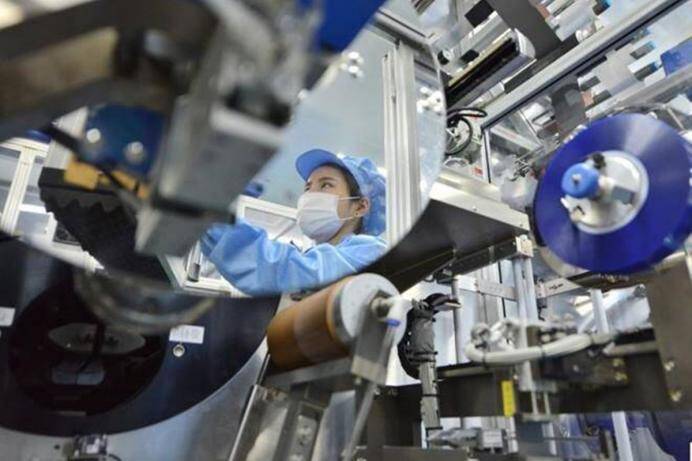Industrial Battery Chargers: Powering Up Your Operations
In today’s world, technology and automation have become the norm in many industries. As a result, industrial operations require a reliable source of energy to keep things running smoothly. Industrial battery chargers play a crucial role in ensuring that operations do not come to a halt due to power outages or insufficient energy supply. In this article, we will explore the importance of industrial battery chargers and how they can help power up your operations.
What are Industrial Battery Chargers?
Industrial battery chargers are electronic devices that are designed to charge and maintain the charge of industrial batteries. These batteries are typically used to power heavy machinery, vehicles, and other equipment used in various industries such as manufacturing, mining, transportation, and logistics. Industrial batteries are made up of lead-acid cells or lithium-ion cells. The type of battery used depends on the requirements of the equipment or machinery being powered.
Why are Industrial Battery Chargers Important?
Industrial battery chargers are important for several reasons. Firstly, they ensure that equipment and machinery are always powered up and ready to operate. This is particularly important in industries where downtime can cost thousands of dollars per hour. Secondly, industrial battery chargers help to extend the life of batteries by maintaining their charge levels and preventing overcharging or undercharging, which can shorten the lifespan of the battery. Thirdly, industrial battery chargers help to reduce the cost of energy by charging batteries during off-peak hours when energy rates are lower.
Types of Industrial Battery Chargers
There are several types of industrial battery chargers. The most common types are:
1. Float Chargers – These are designed to maintain the charge of batteries that are not in use. They provide a low level of current that is just enough to keep the battery fully charged.
2. Fast Chargers – These are designed to charge batteries quickly. They are typically used in applications where downtime is critical and batteries need to be charged as quickly as possible.
3. Opportunity Chargers – These are designed to charge batteries during short breaks in between operations. This helps to ensure that the battery is fully charged and ready for the next operation.
4. Multi-Voltage Chargers – These can charge batteries with different voltages. They are typically used in applications where different equipment or machinery requires different voltage levels.

Choosing the Right Industrial Battery Charger
Choosing the right industrial battery charger is important. The choice will depend on several factors such as the type of battery being used, the application, and the charging requirements. It is important to consult with a reputable supplier or manufacturer to ensure that the right charger is selected. Factors to consider when choosing an industrial battery charger include:
1. Power Output – This refers to the amount of power that the charger can deliver. It is important to ensure that the charger can deliver enough power to charge the battery in a reasonable amount of time.
2. Charging Time – This refers to the amount of time it takes for the charger to fully charge the battery. It is important to ensure that the charging time is not too long or too short.
3. Efficiency – This refers to the percentage of energy that is transferred from the charger to the battery. It is important to choose a charger that is highly efficient to minimize energy waste and reduce costs.
4. Durability – This refers to the quality and durability of the charger. It is important to choose a charger that is built to last and can withstand the harsh conditions of industrial environments.
Conclusion
In conclusion, industrial battery chargers play a critical role in powering up operations in various industries. They help to ensure that equipment and machinery are always powered up and ready to operate. They also help to extend the life of batteries and reduce the cost of energy. Choosing the right industrial battery charger is important and requires careful consideration of factors such as power output, charging time, efficiency, and durability. By selecting the right charger, industrial operations can run smoothly and efficiently, with minimal downtime and maximum productivity.
-
 LiFePO4 batteries are becoming increasingly popular in various applications, including electric vehicles, renewable energy storage, and backup power systems. These batteries are known for their high energy density, long cycle life, and excellent safety performance. In this article, we will discuss the durability and reliability of LiFePO4 batteries and explain why they have a longer lifespan compared to other battery...En savoir plus
LiFePO4 batteries are becoming increasingly popular in various applications, including electric vehicles, renewable energy storage, and backup power systems. These batteries are known for their high energy density, long cycle life, and excellent safety performance. In this article, we will discuss the durability and reliability of LiFePO4 batteries and explain why they have a longer lifespan compared to other battery...En savoir plus -
 Introduction: In today's digital age, where computers have become an integral part of our lives, the importance of peripherals like the PC mouse cannot be overstated. To ensure optimal performance, a reliable power source is crucial. This article explores the advantages of using a lithium battery as the power source for a PC mouse, discussing its efficiency and its impact...En savoir plus
Introduction: In today's digital age, where computers have become an integral part of our lives, the importance of peripherals like the PC mouse cannot be overstated. To ensure optimal performance, a reliable power source is crucial. This article explores the advantages of using a lithium battery as the power source for a PC mouse, discussing its efficiency and its impact...En savoir plus -
 Introduction The world is currently witnessing a revolution in the power generation sector, and one of the key drivers of this revolution is the rise of lithium battery energy storage power stations. As the demand for renewable energy sources increases and the need for efficient energy storage becomes more crucial, lithium battery energy storage power stations are emerging as...En savoir plus
Introduction The world is currently witnessing a revolution in the power generation sector, and one of the key drivers of this revolution is the rise of lithium battery energy storage power stations. As the demand for renewable energy sources increases and the need for efficient energy storage becomes more crucial, lithium battery energy storage power stations are emerging as...En savoir plus -
 LiFePO4 batteries have become increasingly popular in recent years due to their numerous advantages over traditional lead-acid batteries. Here are some of the main benefits of using a LiFePO4 battery: 1. Longer lifespan: LiFePO4 batteries have a much longer lifespan than lead-acid batteries. They can last up to ten times longer, with a typical lifespan of 2,000 to 5,000...En savoir plus
LiFePO4 batteries have become increasingly popular in recent years due to their numerous advantages over traditional lead-acid batteries. Here are some of the main benefits of using a LiFePO4 battery: 1. Longer lifespan: LiFePO4 batteries have a much longer lifespan than lead-acid batteries. They can last up to ten times longer, with a typical lifespan of 2,000 to 5,000...En savoir plus -
 Introduction In the dynamic landscape of telecommunications, communication base stations play a pivotal role in ensuring seamless connectivity. A critical component of these base stations is the lithium battery, a power source that has revolutionized the efficiency and reliability of communication networks. Understanding Communication Base Stations: Communication base stations serve as the nerve centers of our interconnected world, facilitating the...En savoir plus
Introduction In the dynamic landscape of telecommunications, communication base stations play a pivotal role in ensuring seamless connectivity. A critical component of these base stations is the lithium battery, a power source that has revolutionized the efficiency and reliability of communication networks. Understanding Communication Base Stations: Communication base stations serve as the nerve centers of our interconnected world, facilitating the...En savoir plus -
 In any emergency situation, having reliable gear is crucial. Whether you are a traveler, a hiker, a camper, or a survivalist, having the right equipment can mean the difference between life and death. One of the most important pieces of gear in an emergency is a starter battery. A starter battery is a powerful and compact device that is...En savoir plus
In any emergency situation, having reliable gear is crucial. Whether you are a traveler, a hiker, a camper, or a survivalist, having the right equipment can mean the difference between life and death. One of the most important pieces of gear in an emergency is a starter battery. A starter battery is a powerful and compact device that is...En savoir plus -
 Embarking on an RV adventure is a liberating experience, and at the heart of this nomadic lifestyle lies the power to explore – the RV battery. In this blog post, we delve into the world of Langlebige RV batteries, exploring their longevity, real-world cases, and the key factors that make them a trusted companion for extended road trips. Understanding Langlebige...En savoir plus
Embarking on an RV adventure is a liberating experience, and at the heart of this nomadic lifestyle lies the power to explore – the RV battery. In this blog post, we delve into the world of Langlebige RV batteries, exploring their longevity, real-world cases, and the key factors that make them a trusted companion for extended road trips. Understanding Langlebige...En savoir plus

